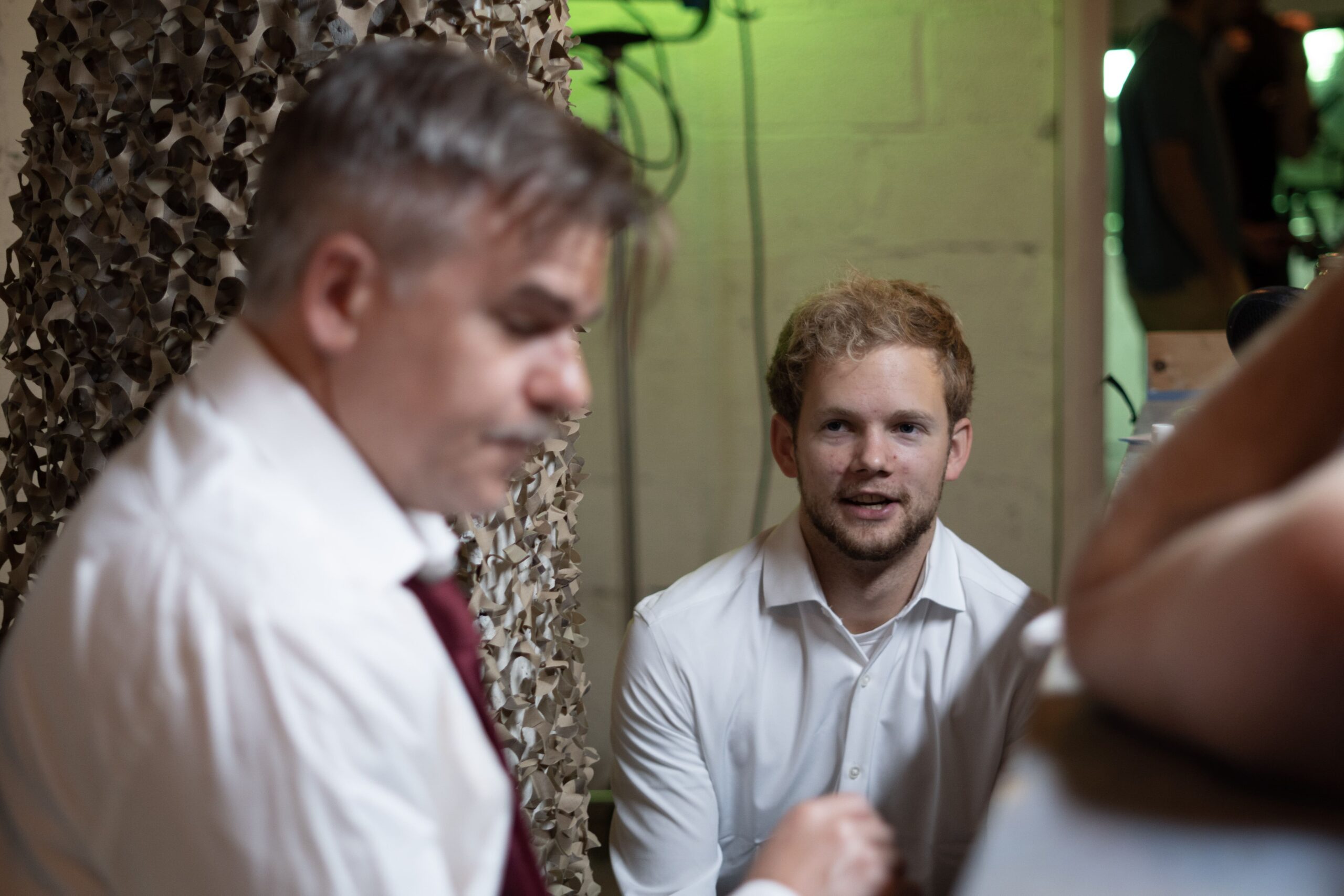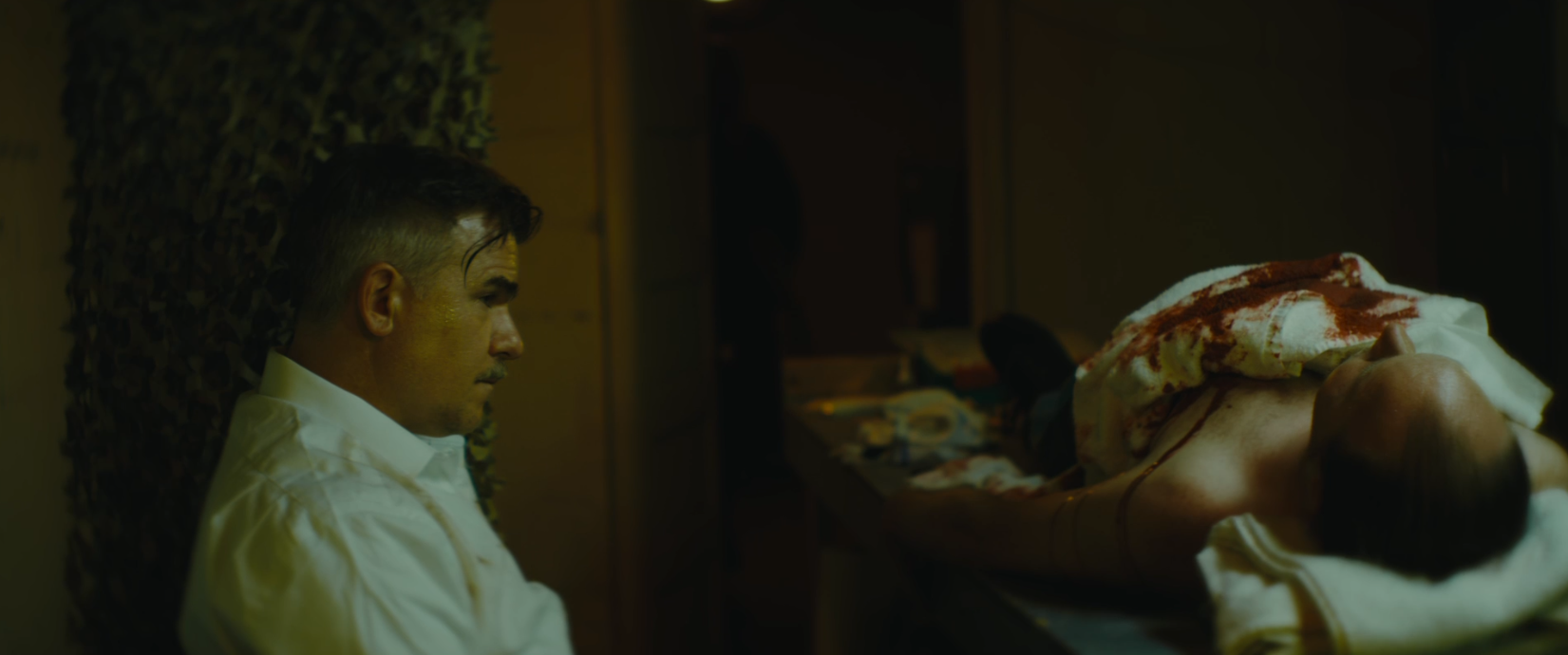In November 2023, I got to shoot a short film with Cullen Moss (Shoupe in Outer Banks). Here’s how:
The biggest question I’ve been asked by people who’ve seen my short film MILAGRO is “how did you get a SAG actor in your film?” To an experienced filmmaker, it’s probably simple, but for a student at a smaller film school like the Zaki Gordon Cinematic Arts Center, it makes sense.
I was 20 at the time, I was a student, no other senior thesis film that year had an even remotely-name actor in it, and I had no connections or family in the industry to rely on.
To be clear, other student films have name actors in them (and much more name actors than someone from a Netflix TV show). I’m not something special. But for my peers and any other filmmakers still working their way up like me, it’s kinda cool to say, “yeah, have you seen Outer Banks? Well the guy who plays Shoupe is the main actor in my film”.
So here’s how it happened. Maybe you’ll learn something to help you in the future on one of your projects.
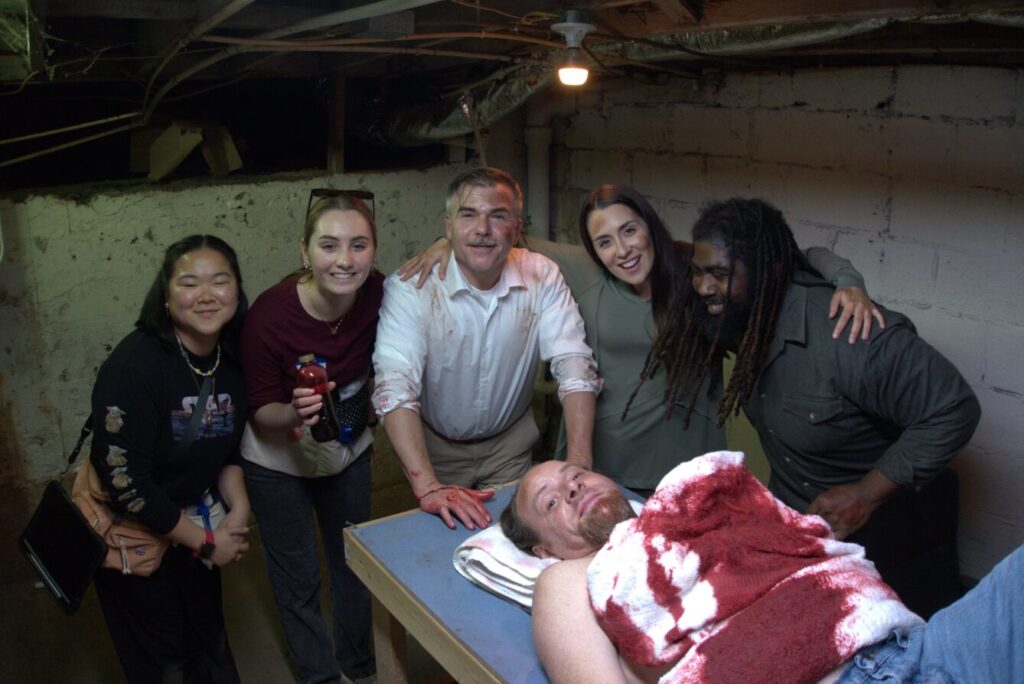
The Idea
All great things start with the most powerful thing in the universe: an idea. My junior year of film school, I began thinking about my senior project, my thesis film. At the film school I was at, it was the biggest thing people talked about. It defined the quality of a student.
Sometime in December 2022, I shot a short with some friends at school in one night called RED PHANTOM. It was my biggest shoot to date with actual people helping out to do things like sound, lighting, camerawork, etc. I was proud of the set.
But something made me wonder how I was going to set my thesis film apart. Sure, it would have more time spent on it. Sure it would be a more meaningful idea than just some guys beating each other up in an alleyway.
But what would make it stand out?
How was it going to challenge me?
I thought about getting a SAG actor in the lead role. That would set it apart. It would be cool. But would it be worth it? Would paying someone and going through all that effort really pay off? Sure it would be cool to tell other people about and sure it might look good on a resume, but in actual, practical terms would it help my career?
That’s what I think is important for any other filmmakers to think through. Yeah, it’s cool to have an actor people recognize on set, but is it worth it for the project? If you’re just starting out, don’t try it. Spend money on other things at this point in your journey.
Aim big of course, but if you’re literally still learning how to tell a story, the last thing you need is an actor to get paid while you learn a lot of hard lessons. So save it for a project when you’re ready. Several of my peers were wishing they’d tried to get a bigger actor in their films, but I think it was probably best for them not to. Most of my peers hadn’t made anything before – they were just starting out and learning in film school. They needed those moments to learn and grow through their projects. I sure needed that extreme growing period on my shorts I’d worked on before. I’m not going to tell someone not to do something, but I’m definitely glad I waited till this short film to try to get a bigger actor. I wasn’t ready until then.
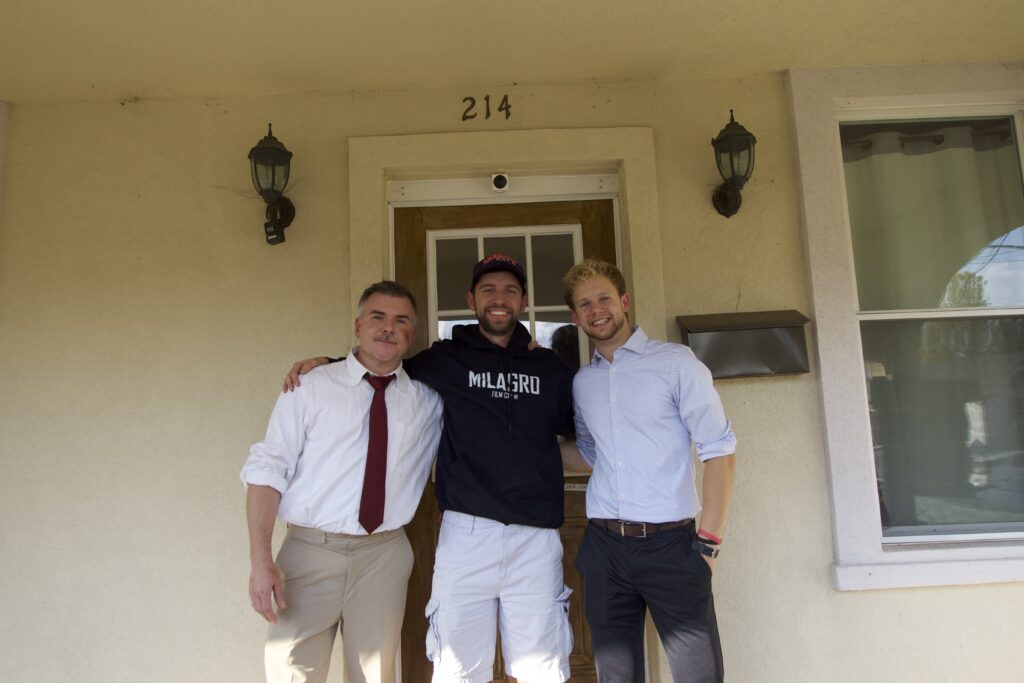
The Process
So I had the idea. I put in on my 2023-2024 school bucket list alongside “go snowboarding”, “visit Georgia”, and “run 12 miles” (I made it to 8 then got side-tracked, but I did hit my other goals).
I didn’t have time to think about it over the summer. Praise God I got selected to shoot the dates I did; otherwise I wouldn’t have had the time to produce MILAGRO at the level I wanted.
I was originally set to film block two out of five (how my film school divvied up crew and equipment so that it wasn’t a free-for-all), but too many people wanted block two. I was voluntold to move to block five in November when everyone would be exhausted from working on everyone else’s sets.
I wasn’t happy about that at first, but after a summer of working camp, I came back to school and block one started quickly. I realized I wouldn’t have had time to prepare my film well.
So after getting inspired on the set I worked on block one and two, I began producing in earnest. Another blessing in disguise. I wanted someone else to produce the film, but they most likely wouldn’t have been able to spend as much time on it as I did to get the cast I wanted.
I used a free trial posting on Backstage to find some actors for the ensemble cast – testing the waters. SIDENOTE: if you’re making a low-budget short film, you can have a lot of cast, a lot of locations, or a lot of VFX, but probably not all at the same time. I set my script in one location, hacked it in half to 10 tight pages from 20, found a location that had no windows so I wouldn’t have to shoot at night (night shoots are my least favorite) and then made sure there wasn’t a single shot that had VFX. The only thing I didn’t make easy for me was the ensemble cast. You work your tail off on one hard thing. Don’t make it too hard on yourself.
The casting on Backstage went well to fill out the ensemble cast, but the main actor was going to be a lot of work. So here’s exactly what I did.
I would love to say I am a really good producer who used psychology and negotiating tactics to get a great cast that I wanted at the start. But I really just threw spaghetti at the wall.
I started with IMDbPro. It has agent and manager contact information. I got a working list of about 20 actors in the “C” level range. People you’d recognize if you had seen a show or movie with them in it. People in the 4,000-12,000 range on the IMDb starmeter.
The template email I wrote was super brief. I asked for the availability of the actor on the dates, explained that it was a student film but I would be as professional as possible, and then gave a brief description of the role and script. I ended it by asking if they were available and interested in the script, to let me know.
The first 20 emails I sent helped me hone the template email. I learned $2,000 for four days was ludicrous (unless you personally know the actor; then offer whatever you want). So I upped that to $3-4,000 depending on the actor and just to see who would bite with what. I guess the character and story description was interesting enough because I never tweaked that and it seemed to get some bites. I even rewrote the script to gender-swap the main role so I could offer it to more actors. I changed the shooting time to four days from six. And I learned instead of saying I offered them the role, I should say I wanted to know their availability.
Those first 20 emails taught me a lot, and even if it wasn’t exact feedback someone would respond with, just going through the process gave me time to think and marinate in my ideas. I tried a lot of different subject lines too. And final thing about that template email, I used the actors’ (or actresses’) names as much as possible (and the agent’s name) so that it would seem more personal, and I heavily emphasized it was a SAG student project. I guess that made it look more legit that the student making it at least knew he’d have to go through a union.
If you aren’t a student, then the SAG microbudget agreement is the way to go (which I ended up doing anyway as you’ll see).
So after the first 20 emails and tweaking my plan, I sent out emails every day for about four weeks – 180 total. Each one was personalized. Each email was hand-sent. It wasn’t easy work.
From those 180, the results were basically for every 10 emails, 3 would be a response. Out of those three, two would say no, and the other one would ask for a script or at least ask for some details.
I haven’t checked the exact stats but I think eight actors read the script total. After doing this for three weeks, I got four “bites”. Mykelti Williamson (Forrest Gump, Chicago PD) eventually said no, Casper Van Dien (Starship Troopers) had a conflict with another shoot, Dean Cameron (Summer School, Straight Outta Compton) said yes, and Cullen Moss (Outer Banks) said he was interested.
There may have been a few others who gave me hope, but those are the ones I remember thinking I had a legit shot at because of how their agents talked.
Dean Cameron and Cullen Moss both were interested about the same time which led to an interesting dilemma. I had no idea who would be the better fit. Dean’s starmeter was higher on IMDbPro, so I went with him. His “yes” was more definite too at the start.
I also had another actor who was in a lot of smaller stuff (he had some older credits, a super bowl commercial, and a tiny military bit in Transformers: Dark of the Moon), but he ultimately wasn’t going to be worth the price for his “star power”.
Star power is such a relative thing that is kinda stupid, but it does matter. If you can throw a name of a popular show after an actor’s name, BOOM… your project all of a sudden looks so much better to festivals, distributors, agents. Even better if you can show JUST the actor’s name with no credit…but I’m not at that level yet and anyone reading this article on a tiny filmmaker’s blog probably isn’t either.
So I moved forward with Dean Cameron. I got a contract figured out, got a plane ticket, and started working on the SAG stuff. Also I should probably mention that this was all DURING THE WRITER AND ACTOR STRIKE. Yeah, probably should have mentioned that at some point. Actors were wanting to act.
So that was that. I called Dean Cameron on the phone, made sure he approved the Airbnb, figured out his transportation from his residence to the airport, got costume figured out, and then announced it to my core film crew three weeks before the shoot.
So why is Cullen Moss in the pictures up there? And not Dean Cameron?
Contracts are worthless
Graham Holliday
Two weeks before the shoot, I went on a peaceful prayer walk in the woods on a trail near my college. It was a great time.
The next morning I see an email from Dean’s agent asking me to call him with something urgent. So I called him, and yeah, things weren’t good.
I want to be careful not to trounce Dean or his agent. They were very professional and if I were in their same situation, I would have done the same thing.
Basically, Dean was offered a role in a feature shooting at the same time. His agent had tried to make it work around my film shoot, but it wasn’t possible. Because of the strike, Dean needed to take the other job because it paid more.
Dean’s agent worked hard to get two more people lined up (one was a voice actor and another was in a supporting role in 1923). I tried to get paid back for the plane ticket and say something about legal action with the contract, but I got a response with the SAG contract quoted saying everything they were doing was legal. I was mad. But I didn’t burn the bridge or blow up.
In a situation like that when you’re a young filmmaker, you have an attitude that you aren’t going to get beat by the system. You’re gonna be smart. But that’s not how it works. People with experience know what they’re doing.
I was in the hole on the budget because of the wasted plane ticket (first class too might I add), it was two weeks out from the shoot, and I’d already ordered the crew hoodies with Dean’s name on them). Yeah, that bucket list item might not get checked off.
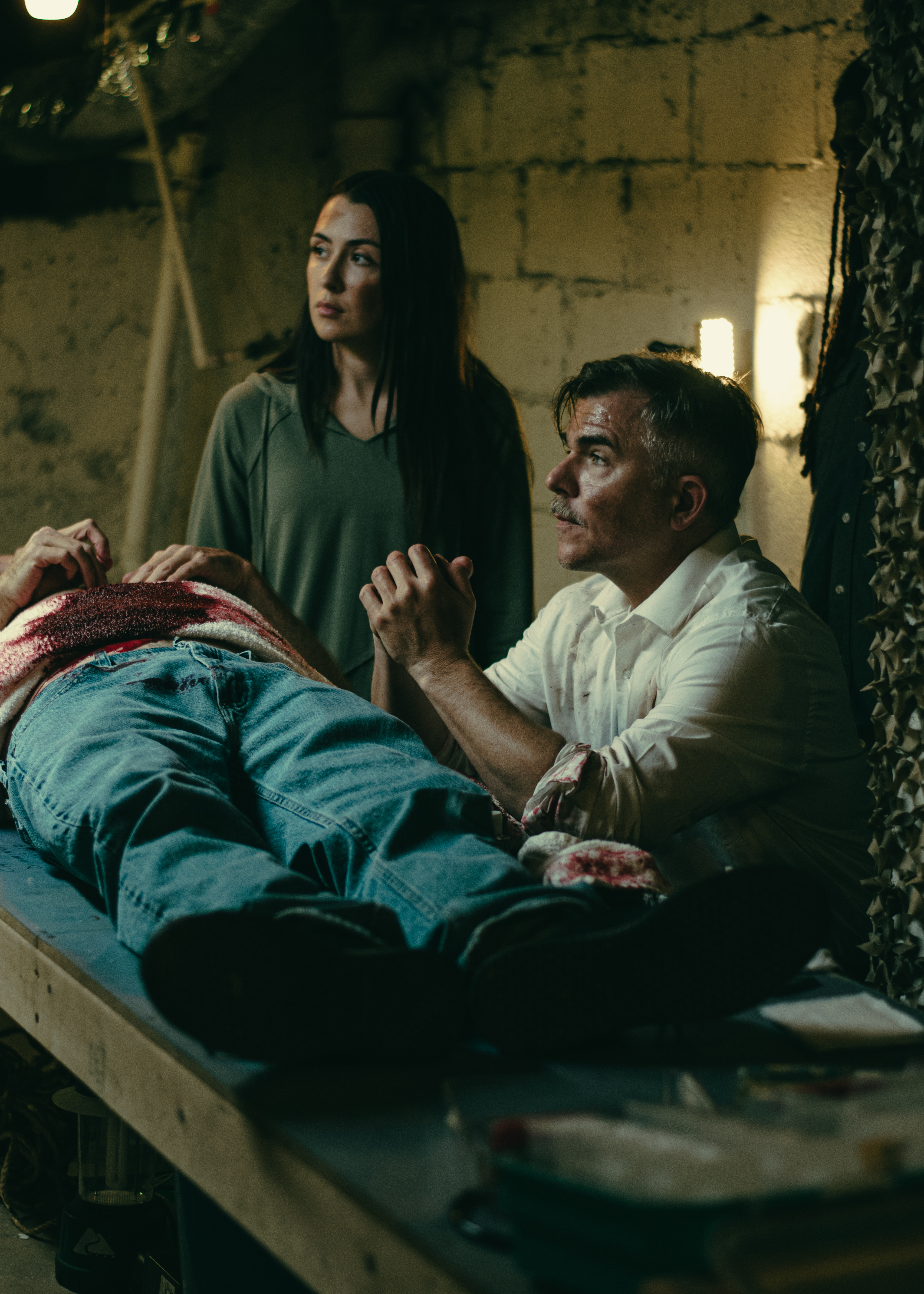
The Shoot
I decided it probably wasn’t meant to be to have a name actor in the movie. Also, I realize it’s comical me calling some of these actors “name” actors. I completely realize in the grand scheme of things these actors aren’t THAT big. But for a student filmmaker, it’s kinda cool that you’re working with people that your friends have seen on their TV.
The exact thought process I went through I can’t exactly recount. I don’t remember it. My key crew were aware things weren’t going so hot, but I had a backup local actor I knew I could ask. I was going to be able to make a movie regardless.
There was a lot to get done anyway. Props, costumes, other actors. The SAG paperwork hadn’t gotten approved either. Nice thing I hadn’t wasted time on that at least.
After a week of dwelling on it and wrestling through what to do and who to ask, I emailed back Cullen. I’d originally said no to him in a vague way by saying funding had fallen through and I wouldn’t be able to pay him what he deserved (if he’d said pay didn’t matter, I wouldn’t have been mad).
So now a month later I emailed him back and said things had come together and if he was still interested and available, I’d like to offer him the role. Walking out of church on Sunday I saw his emailed response. “I’m in”, or something like that.
We raced through details from there. I communicated directly with him – not his agent which made things efficient, but because of how quickly Dean Cameron had fallen through, I wasn’t confident Cullen would show up until I saw him in person for his wardrobe fitting the day before the shoot. He drove too, which was nice not having to deal with plane tickets (since Dean’s didn’t transfer). So that was that.
I also called SAG that week and got in contact with a local Virginia rep who walked me through the microbudget agreement (any project under $20,000). It wasn’t hard to convince me that was easiest and best for the shoot.
Cullen was the best actor possible on set. He didn’t have a chip on his shoulder or anything. He was professional, funny, dedicated, and hung out with the crew and cast the whole time. He never hid away thinking he was above everything.
My first day driving to set I had my hands full, and he got out of the car he’d been driven in and immediately offered to help. I knew God had blessed me with the right actor for the role.
But it took a lot of work. My advice for Christians: pray like everything depends on God, and work like everything depends on you.
My advice for everyone else: aim big (when you’re ready), work your tail off (the harder you work, the more luck you have), and enjoy the process of working (if you don’t enjoy it or at least get a little thrill from it, you may be in the wrong profession).
Thanks for reading, and I hope you got some ideas for how to get a “name” actor in one of your projects.
